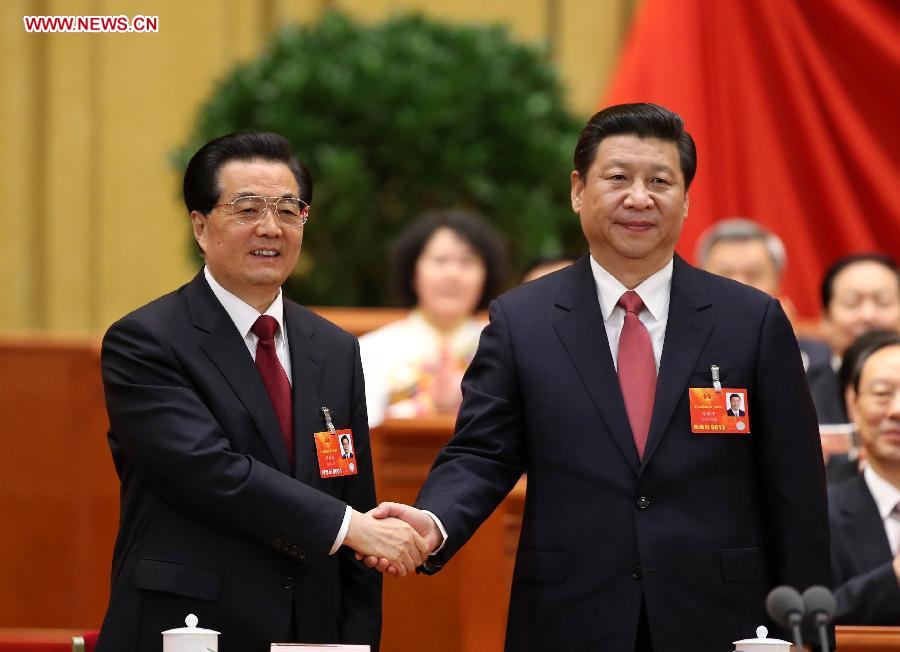Xi Jinping: Pursuing dream for 1.3 billion Chinese
 0 Comment(s)
0 Comment(s) Print
Print E-mail China.org.cn, March 17, 2013
E-mail China.org.cn, March 17, 2013
Nearly 3,000 deputies to the national legislature made their choice on Thursday, electing Xi Jinping as the leader of China and its military.
Long applause filled the Great Hall of the People as Xi was elected president of the People's Republic of China (PRC) and chairman of the PRC Central Military Commission.
Xi's new role follows his election on Nov. 15 last year, when he was elected general secretary of the Central Committee of the Communist Party of China (CPC) and chairman of the CPC Central Military Commission.
Xi is now the leader of the CPC, the state and the military.
Xi rose from his seat and bowed to the deputies. In a warm handshake, Xi was congratulated by his predecessor Hu Jintao.
Xi is the seventh Chinese president following Mao Zedong, Liu Shaoqi, Li Xiannian, Yang Shangkun, Jiang Zemin and Hu Jintao.
While meeting the press shortly after he became general secretary of the CPC Central Committee, Xi said the new leadership would shoulder the responsibilities for the nation, the people and the Party and he pledged to fulfill the missions entrusted by the people.
Four months into office, Xi has started with a good beginning by pushing forward a series of popular policy measures.
Xi has stressed the importance of reform and the rule of law, initiated a campaign to curb extravagance, and urged strict disciplines on the CPC and the military and an all-out effort to tackle corruption.
He also reiterated China's policy of peaceful development and underlined opportunities that the world might get from China's rise.
The new leadership led by Xi has won respect and trust from the Chinese people. A media commentary said "China's 'New Deal' has taken shape."






